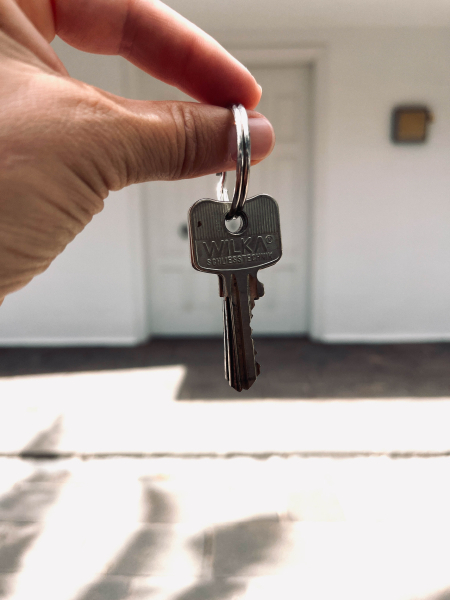Spanish mortgage
In the last episode, we described how simple, or rather complicated, it is to acquire a house in Lanzarote. To complete the whole purchase process, this time we'll provide information on securing a mortgage, as that wasn't an entirely straightforward task either. If you want to finance a property abroad with a mortgage, there are two options. The first is an "American" mortgage from a Czech bank – meaning you secure it with Czech property and no one investigates what you use the money for. Understandably, the interest rate is higher than for a classic mortgage on a property in the Czech Republic. The second option is a local mortgage, in this case, a Spanish one. This shouldn't be a problem for EU members. But... there's always a but.
Spanish mortgages had interest rates of 1.5% in the summer of 2022, which looks very attractive. Especially at a time when interest rates in the Czech Republic rose to 6.5%. At that point, it's good to look at offers from multiple banks, most of which have online simulators. Moreover, all real estate agencies confirmed that mortgages for foreigners in Spain are not a problem.

Perhaps the first choice, or rather a test, is the simulator on the Idealista advertising portal, where the largest selection of properties is available. You can easily enter all your information online here. Idealista offers the promise that you will receive several independent offers for comparison. In reality, the outcome is different. The advantage is that Idealista has a separate Hipotecas section where online communication and document submission work. Only later do you notice that it's not quite an independent portal, but it is directly linked to Santander Bank, which operates or even owns the Idealista portal. We received a list of documents to provide.
Here you'll likely encounter the first administrative hurdles. The tax system in Spain is different, and it requires lengthy explanations as to why employees in the Czech Republic don't file tax returns, or even that the employer pays the tax here. And we're not even talking about when you're your own employer; that's when it really gets complicated. Nevertheless, Santander has a very strict risk department and will only evaluate Czechs for a maximum of 20% of the property value.
Another option is Caixa, which is capable of providing mortgages to non-residents. Here the problem is online communication, and it doesn't help even if you open an account at the bank. We are still waiting for a response. The last option for us was Bankinter, which came recommended by several real estate agencies that had experience with Czech clients.
It is definitely advisable to probe the banks before the actual purchase to ensure that you can indeed get a mortgage.

In Spain, it's generally true that mortgages are provided for up to 80% of the property's value. And here we start subtracting. The first minus 10% is because we're not residents. Another minus 10% is because the house isn't for our primary residence. And the last minus 10% because we don't have income in Euros. We ended up with a nice 50% of the property value. But compared to Santander, we were congratulating ourselves. We had a simulation done and everything worked out. This prepared us for the conditions to go ahead with the purchase and then just fine-tune the specific amount that will be plus or minus close to what we have processed in the simulation.
Here too, our expectations were quite different from reality. When we came back a few months later with a specific house, the bank started the whole process from scratch. And as is usual with banks, and not just a domain of Spanish ones, the first list of required documents is far from the last. We kept sending documents for two months. What struck us was that there is no official communication channel, whether online or email, but the banker was writing to us via WhatsApp. Their absolute specialty is conversations like: "Radka, good morning," and then silence for the whole day. I must admit, after two months, I was getting nervous from the pinging of the mobile phone.
Eventually, we managed to get through the risk department and other "confirmation departments," just bureaucracy as befits a southern state. We proceeded to sign the contract. Compared to the Czech Republic, practices in Spain are completely different. Everything must be prepared in advance, including the money. Every contract is signed at a notary's office and must be registered there 12 to 15 days in advance, depending on the location. This is most similar to our deadline for registration in the land registry. Simply put – signing the contract is the very last step, and the transfer in the land registry is not a condition but just a formality that will happen sometime in the future, and no one knows when.

We then connected our Lanzarote lawyers with the bank's headquarters in Madrid to ensure everything went smoothly. Just when we thought nothing could go wrong, the bank informed us that the signing might not take place because not all the money had been transferred to our account at the bank. It's probably unnecessary to mention that we received this information from the bank only the afternoon before the signing, and all the money was already in the lawyers' account. Subsequently, the lawyers and the banker managed to get into a dispute, and it looked like a total fiasco and the ruin of several months of hard work. We were burning up WhatsApp because we wouldn't let such a triviality cause us to fail. In the end, everything worked out, the money was successfully moved to the right place (we still prefer not to look at the fees), and everything was signed the next day. Phew!
So there we have it, the house is ours, and we move on to the next step – renovation.

by Radka - 22. 11. 2023